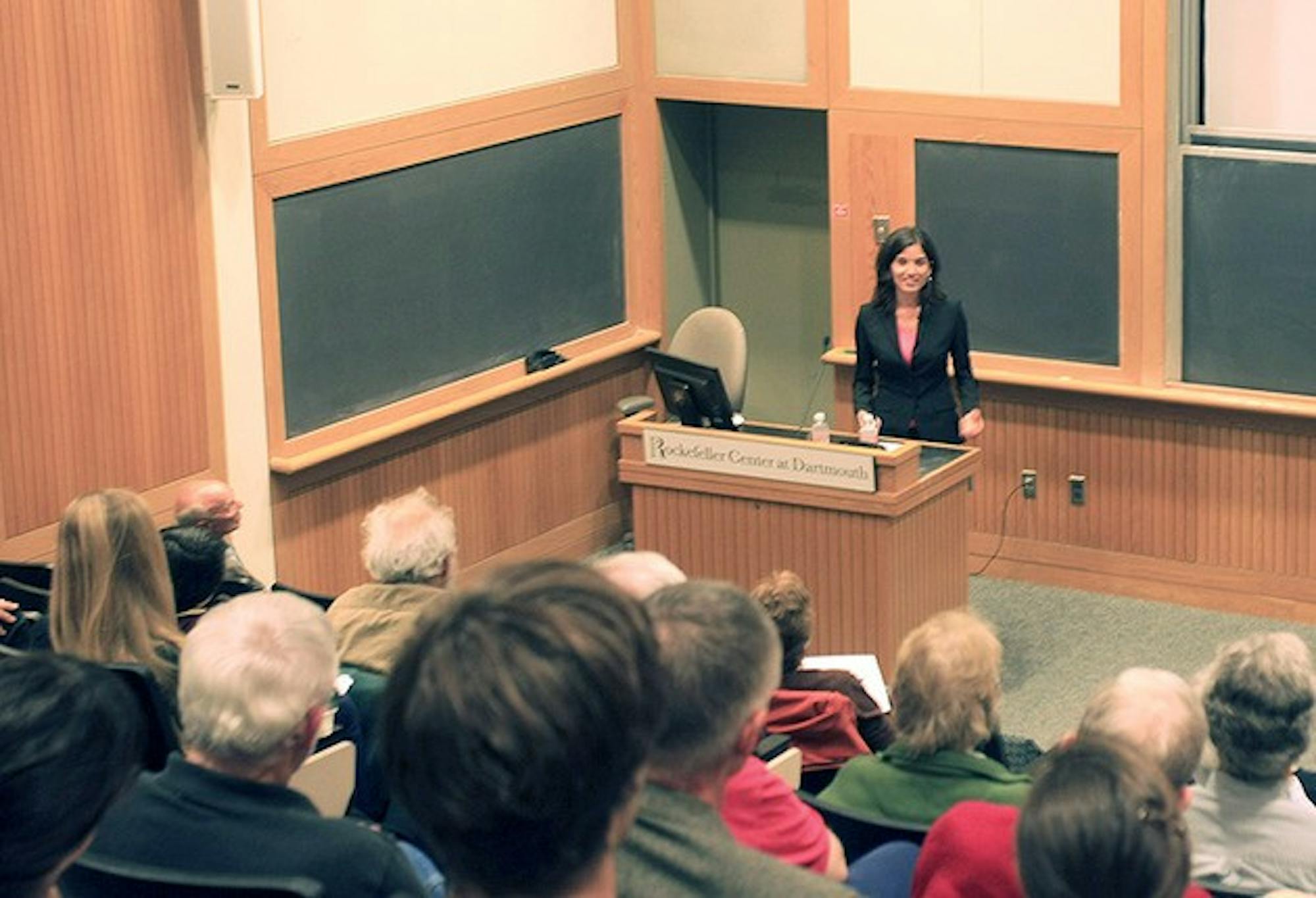In her lecture, titled "The Fine Line Between Science and Politics," Shafy discussed three articles she wrote for Der Spiegel that focused on the relationship between politics and science in the developing world. In the first story, Shafy profiled a Swiss scientist working on a new way to provide clean drinking water to people in Kenya. Instead of only concentrating on science, the story highlighted the challenges of bringing technology to people who truly need it and educating them on its use, according to Shafy. She credited the story with sparking her interest in the developing world.
"I just wanted to know more about the situation and understand it better, so I just kept fighting for stories like these," she said.
Shafy also discussed a story she wrote 18 months ago about protests in response to Haiti's cholera outbreak. She said it was the "most complicated and challenging story" she has worked on in her career. She had only one night to write the story, but she was extremely affected by the conditions she observed.
"It hasn't left me yet," she said. "I want to go back and do [the story] more thoroughly."
Shafy is currently completing her tenure as a Nieman Fellow at Harvard University, a program that brings journalists with at least five years of full-time professional experience from around the world to the university for one year. At Harvard, Shafy has taken politics classes at the Kennedy School of Government, and she said she accepted the fellowship to learn more about the political implications of science.
"This desire to better understand the link between science and politics is what brought me to Harvard this year," she said.
With a half-Swiss, half-Dutch mother and an Egyptian father, Shafy said she grew up surrounded by diversity. She was raised in Switzerland as an only child, speaking two dialects of Swiss German, which is uncommon in Switzerland. Shafy said she always felt slightly out of place.
"I think growing up with three cultures and feeling that I didn't really fit in anywhere contributes to the idea that I'm the right person for certain stories," she said.
Shafy said she particularly enjoys writing for Der Spiegel because of the independence it allows her.
"I'm lucky because we get to choose our stories," she said. "I'm able to follow my interests."
Following her lecture, Shafy answered questions from the audience. Katherine Sanders '12, a pre-med student interested in global health and development, attended the lecture out of personal interest, and said she was impressed with Shafy's resourcefulness in reporting.
"I think it was most interesting how she was able to convince her editor that her stories are valuable," Sanders said.
Classics professor emeritus Edward Bradley introduced Shafy, focusing on the contributions journalist Bernard Nossiter '47 made to journalism before applauding Shafy for her work. The issues on which Shafy reports are of vital importance to everyone, according to Bradley.
"It's important for students to be better informed about the connection between developments in science and the influence it has on politics," he said.
Charles Buell, a Hanover resident who frequently attends Rockefeller lectures, said he found Shafy's innovative thinking and fast reporting to be very impressive.
"She did what had to be done," he said. "It showed a lot of initiative. That's the perfect example of doing what's needed to get a story."
The Bernard D. Nossiter '47 Lecture is an annual lecture sponsored by the Rockefeller Center in honor of Nossiter, a Washington Post reporter, and his contributions to journalism. The lecture brings Nieman Fellows from Harvard to Dartmouth.




